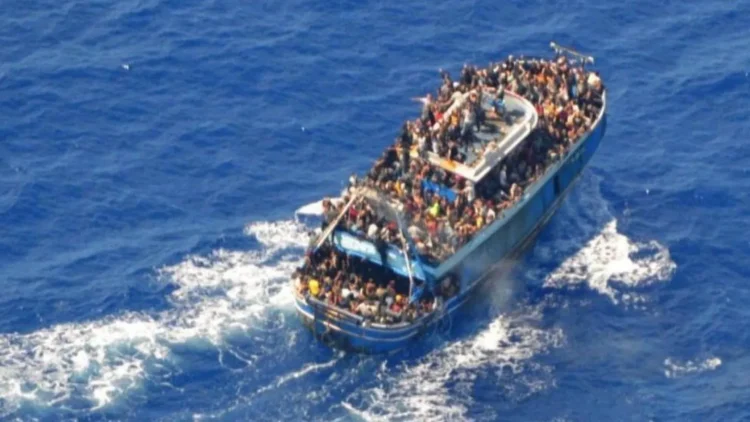Nearly two years after the deadliest migrant shipwreck in the Mediterranean in a decade, a naval court in Greece has charged 17 members of the Hellenic Coast Guard over the tragedy that claimed hundreds of lives.
The Adriana, a fishing vessel overloaded with up to 750 migrants, sank off the coast of Pylos in the early hours of 14 June 2023. Only 104 people survived. Just 82 bodies were recovered, leaving as many as 500, including women and children, feared drowned in the vessel’s hold.
Among the charged is the captain of the coastguard ship LS-920, accused of causing the shipwreck, failing to render assistance, and dangerous interference with maritime transport. He is also facing charges of exposing lives to danger—an allegation also levelled at senior Coast Guard leadership, including the then-Chief and the Search and Rescue Coordinator. The rest of the crew are charged with complicity.
Survivors claim the coastguards tried to tow the vessel recklessly, causing it to capsize, and later silenced those who tried to speak out. “They told us to shut up,” said Ahmad, a Syrian survivor who lost his brother in the disaster. “I’m happy they are finally being held accountable, but justice is not done until they face prison.”
The Greek authorities have consistently denied wrongdoing. However, BBC investigations and survivor testimonies have repeatedly challenged the official narrative, suggesting the Adriana was in distress for hours before the fatal incident.
A joint legal team representing the victims welcomed the charges as “a substantial and self-evident development” in the pursuit of justice. The 17 coastguards are expected to be questioned in the coming weeks, after which a decision will be made on whether to proceed to trial.
The case continues to shine a harsh light on Europe’s migration policies and the accountability of authorities entrusted with saving lives at sea.










